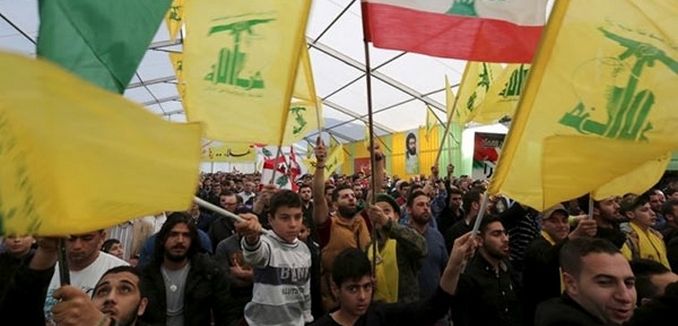Lebanon’s government does not function independently, but rather “exists merely because the Iranian proxy terrorist organisation, Hezbollah, allows it to exist,” a retired Australian military officer wrote Monday in The Australian.
Jim Molan, who had served as chief of operations in Iraq and authored Australia’s border control policies, observed that the current calm along Lebanon’s southern border with Israel is deceptive. “[It] is quiet because Hezbollah wants it that way at present,” Molan wrote, noting that Hezbollah is currently busy supporting the regime of President Bashar al-Assad in neighboring Syria.
Hezbollah is Iran’s “most reliable proxy,” and the skills and experiences it gained in Syria will be used wherever Iran next decides it “wants trouble to occur,” likely on the Lebanon-Israel border. Hezbollah receives 80 percent of its $1 billion budget from Iran, according to Molan.
The threat Hezbollah poses to Israel is even greater than the one posed by Hamas, Molan wrote. The Gaza-based terrorist organization had an estimated 10,000 rockets and fired 6,000 of them into Israel during its 2014 war, causing scores of casualties. Hezbollah, by contrast, has more than 100,000 rockets and missiles at its disposal, and is believed to be capable of launching “260 rockets accurately and with long range at Israel every six hours, up to 1200 rockets a day,” Molan observed. Hezbollah’s rocket and missile arsenal is believed to exceed that of 27 NATO nations combined.
“My judgment is that Israel will not initiate a war on its northern border, but if it detects final preparations for that war, it may act pre-emptively to stop more than 1000 rockets a day hitting its people,” Molan wrote.
Because Hezbollah and the government of Lebanon are so closely connected, “Israel is likely to see the Lebanese government, people and supporting infrastructure as one with Hezbollah, and all as legal targets for the best air force in the world.”
“The Lebanese Armed Forces are seen co-operating with Hezbollah on the southern border in contravention to UNSCR 1701,” Molan noted, “because Lebanon’s Prime Minister has publicly stated that Hezbollah is a co-defender of Lebanon along with the armed forces.” An assessment by Israeli security sources last month concluded that in a future war, the Lebanese army would fight alongside Hezbollah.
“If Israel replies to Hezbollah provocation, it will take a decade for Lebanon to recover,” Molan cautioned.
To avoid such a devastating conflict, “the world should act to split the Lebanese government from Hezbollah, even if it takes sanctions against the Lebanese government to do it,” he urged.
Apparently fearing the consequences of a renewed conflict between Israel and Lebanon, Lebanese Prime Minister Sa’ad Hariri, who is outnumbered by Hezbollah supporters in Lebanon’s government, last week called for the United Nations to arrange a permanent ceasefire between Israel and Lebanon.
According to a July 2016 report by the Foundation for Defense of Democracies, Israeli officials believe that any future war with Hezbollah has the potential to cause “thousands of civilian deaths” in Israel. Hezbollah has, among other things, threatened to attack ammonium tanks in Haifa, which could kill tens of thousands of people.
Jonathan Schanzer, senior vice president of the Foundation for Defense of Democracies, explained that month that Hezbollah’s widely-reported tactic of hiding military assets in civilian areas would lead to mass casualties. Reports emerged in 2013 that Hezbollah was offering reduced-price housing to Shiite families who allowed the terrorist group to store rocket launchers in their homes. An Israeli defense official told The New York Times in May 2015 that the buildup of Hezbollah’s terror infrastructure in southern Lebanese villages meant that “civilians are living in a military compound” and that their lives were at risk. A few days later, a newspaper linked to Hezbollah bolstered the Israeli assessment.
[Photo: Fars News ]




